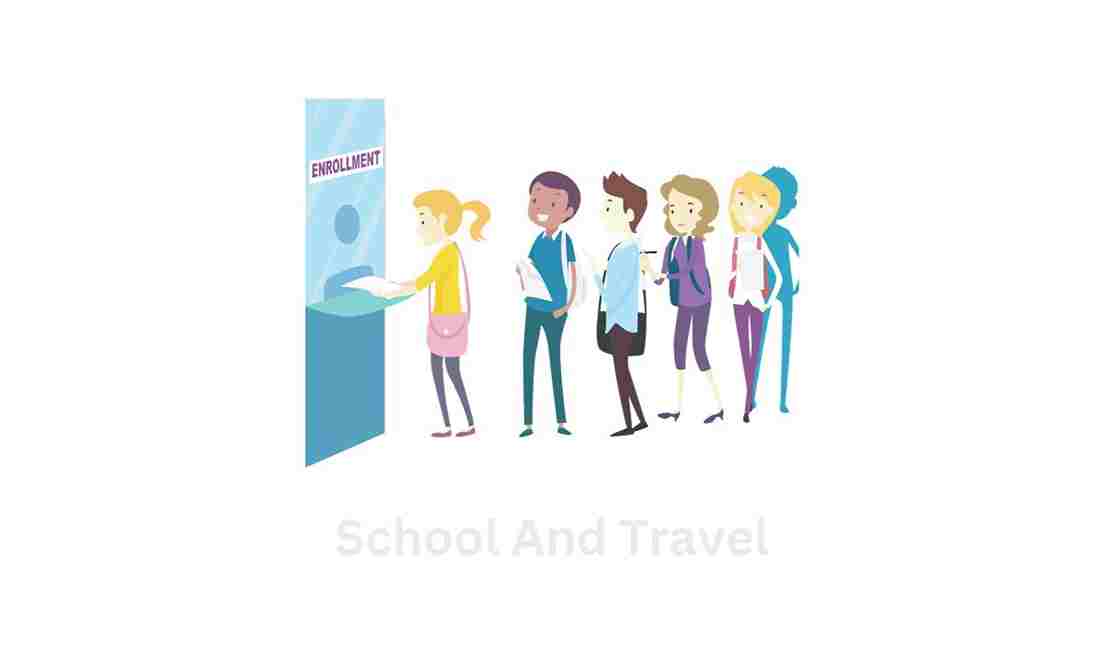As a parent, you can unenroll a child from a school whenever you like.
Although most people criticize withdrawing a student from a school midway through the academic year, you, as a parent, can make that decision if you feel that it is the right one for your kid.
However, if your kid is facing any issues at school, it is important that you don’t leave it too late before withdrawing them.
This article will discuss why you might want to pull your child out of school, how to do it, and some things you should consider before choosing a school for your children.
What Does it Mean to Unenroll My Child From School?
To unenroll your child from school means officially removing them from the list of active students at that educational institution.
When you unenroll your child, they will no longer attend classes, participate in school-related activities, or receive services from that school.
This action can be temporary or permanent and is usually done for various reasons, such as relocation, dissatisfaction with the school, switching to homeschooling, or transferring to another school.
Once a child is unenrolled, the school no longer holds responsibility for the student’s education, and the parents or guardians must ensure the child receives appropriate education elsewhere, following local and state regulations.
Top Reasons To Withdraw Your Child From School
1. Poor academic performance
As a parent, you should waste no time withdrawing your child from a school if your child consistently turns in bad results at the end of every term.
Although poor academic results may be because your kid may not be a bright student, consistent poor academic results mean that the school is not doing enough to improve your child.
Moreover, if the report card shows that your child does well in school, but you notice that their mathematical or language abilities are still very poor, withdraw your child immediately from such a school.
2. Unprofessionalism by staff
You have the right to withdraw your child from a school immediately if you notice that the staff is unprofessional in their duties.
For instance, if you notice that the lead teacher of your child’s class in a primary school always comes to school late and is lazy about class management, you can withdraw your kid immediately from such a school, especially if you have filed a complaint. Nothing is done about it by the management.
You also have the right to immediately pull your child out of school if you think the teacher is hurting or mistreating your child.
3. Poor attention to details
As a parent, you surely want a teacher to have a good relationship with your child and take good note of everything your kid does.
However, if this is not the case and the teacher fails to spot some obvious mistakes made by your child, like switching the covers of a drinking bottle while playing or even giving your child the wrong notebook, or does not even know your kid by name, withdraw your kid from such a school immediately.
Any teacher who does not pay great attention to the details of her job will not care much about your child’s academic development.
4. Bad influence
One major truth about school is that their classmates or other students can positively or negatively influence your child.
So, do not hesitate to withdraw your child from school if a student negatively influences your child.
In this scenario, complaining to the school management is not always the best solution since the school will not ask the child to withdraw.
But if you pull your child out of that school, they will no longer be around the students, making them feel bad.
This will give your child a fresh start.
5. Lack of action by the school management
As a parent, withdraw your child immediately from a school if you notice that the school has continuously failed to apply your valuable recommendations or contributions that will improve the school and the quality of education.
Also, if you enroll your child in a school and then find out that they don’t have a feedback system, you should pull them out immediately.
This means the school doesn’t care about parents’ opinions and only acts in their best interests.
Can I Unenroll My Child From A School At Any Time?
Yes, you can unenroll your child from a school whenever possible and anytime within the academic term.
This is because no rule guides parents on when they can withdraw their children from school.
However, to successfully unenroll your child, make sure that you pay attention and apply the state’s homeschool rules when doing so.
Moreover, while you may not have to write a withdrawal letter in some states, others may ask you to write one for the school.
Sample of a withdrawal letter to your child’s school
[Your Name]
[Your Address]
[City, State, Zip Code]
[Email Address]
[Phone Number]
[Date]
[School’s Name]
[School’s Address]
[City, State, Zip Code]
Dear [Principal’s Name],
I am writing to formally notify you of my decision to withdraw my child, [Child’s Full Name], from [School’s Name], effective [Last Day in School, e.g., September 30, 2025].
Due to [specific reason for withdrawal – e.g., a family relocation, personal reasons, or a decision to homeschool], it is in our family’s best interest that [Child’s First Name] discontinues his/her studies at [School’s Name]. We have had a [positive/negative/mixed] experience with the school, and we appreciate the support provided by the staff and teachers during [his/her] time there.
Please provide any necessary paperwork or steps that need to be taken to ensure a smooth withdrawal process. Additionally, I kindly request a copy of [Child’s First Name]’s academic records, including report cards, and any other relevant documentation.
I would also appreciate guidance on any other information or actions required on our end. We want to ensure there are no loose ends and that the transition is as seamless as possible for both the school and [Child’s First Name].
Thank you for your understanding and support in this matter. We hope to ensure a smooth transition for everyone involved.
Sincerely,
[Your Full Name]
[Relationship to the child, e.g., “Mother” or “Father”]
Things To Consider When Selecting A New School For Your Child
To avoid unenrolling your child in the middle of a term from a school that disrupts their academic development, here are some of the things that you should consider when picking a school for your child:
1. Values
When picking a school for your child, always look at the value of the schools that you have in mind. This is more like the school’s guiding principles and what they represent.
Make sure that the morals of the school are what you support. You can learn about the values of any school via the Internet.
2. School fees
Before deciding on your child, consider the cost of education, school fees, and schools.
Do not pick a school because its fee is high, as some schools still offer world-class education but have affordable school fees.
However, ensure you pick a school where you won’t struggle to pay their salary.
3. Location
A school’s location is another factor you should consider when picking a school for your kids.
Make sure you choose a school close to your home and can be easily reached in an emergency. Moreover, your kids will reach school on time if they attend a school close to home.
This will enable them to settle in properly before the start of classes.
4. The Environment
Always look at the school’s environment before choosing for your child.
Check the school’s building, classes, and environment to see if it is good for learning and has a good ventilation system.
5. Safety
Find out the safety measures put in place by the school to guarantee the security of students. If it is unsatisfactory, do not enroll your child there in the first place.
6. The academic results of the school
Find out from parents whose kids attend the school how well it does academically, which is the most important thing.
7. Level of discipline
While choosing a school, choose a school with a proper and normal level of discipline. Inquire about their disciplinary modes and methods.
Frequently Asked Questions (FAQs) on How To Unenroll A Child From School
Parents can choose to homeschool their children in California in several different ways, including enrolling them in an already established private school, enrolling them in a public charter or independent study program, or establishing their private home-based school and registering it with the California Department of Education using the Private School Affidavit (PSA).
The legal age of compulsory education in the United States is 18 for all students. With an exit interview with the principal, a child and their parents can request a withdrawal from school upon reaching the age of 16.
Across the United States, homeschooling is fully protected by the law. Due to its classification as a form of homeschooling, unschooling is permitted in all 50 states.
If you decide to homeschool your child through a public charter school in California, the state will fund your educational expenses. This is not a scholarship or a voucher program but rather a means of providing financial support to families to purchase vetted educational materials and participate in enrichment activities. Charter schools are also helpful because they hold teachers and administrators accountable and offer extra resources.
Conclusion
As a parent, you must remove your child from a school as soon as possible if your child is performing poorly, the school has unprofessional staff or any other reasons listed above.
However, when doing so, ensure that you do not break the state’s homeschool regulations.
Furthermore, if you made the correct decision in the first place, you can avoid having to withdraw your child from school.
So, in addition to the factors listed above, consider the level of discipline at a school, the number of pupils or students per class, the school’s reputation, and the school’s extracurricular activities before selecting a school for your child.
Awesome one; I hope this article answers your question.
Editor’s Recommendations:
- 74+ Questions On General Knowledge For High School Students
- 79+ General Knowledge Questions For Scholarship Exams
- 79+ General Knowledge Quiz And Answers (FAQs)
- 79+ General Knowledge Questions About The World (FAQs)
If you find this article good, please share it with a friend.





